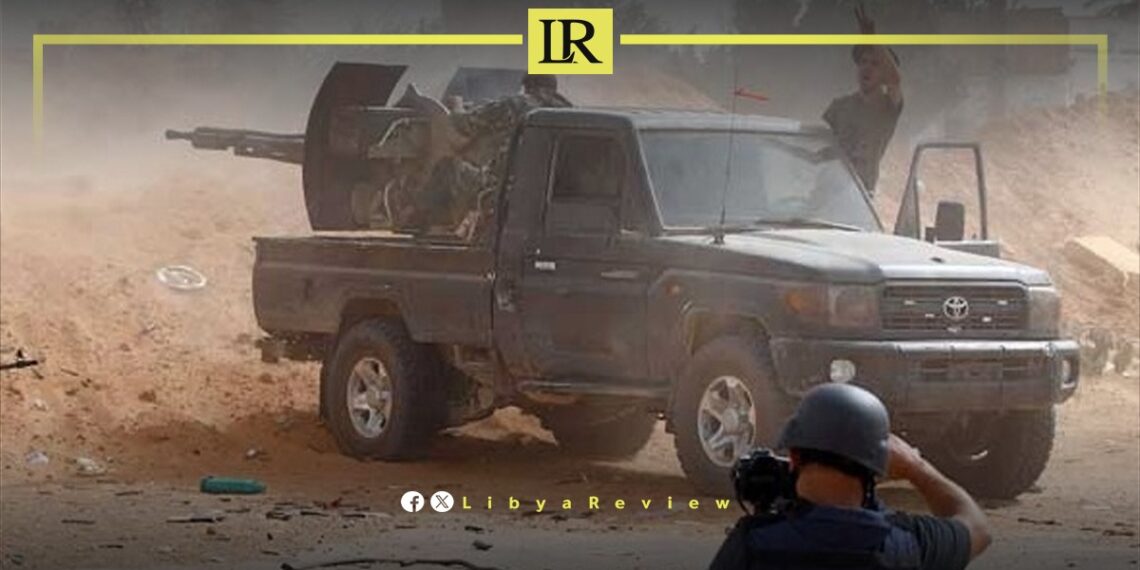Fresh armed clashes erupted in the Libyan coastal city of Sabratha, reviving scenes of chaos and insecurity that have plagued western Libya for years.
According to a Libyan military source, the fighting broke out in the Dahman area after a rest house belonging to a militia leader known as “Al-Kabo” was targeted with an RPG shell. The attack triggered wider confrontations that spread into residential neighborhoods in the Al-Dorain district, sparking panic among civilians.
The source confirmed that heavy gunfire and shelling continued toward the Wadi area, with armed groups deploying inside narrow streets. Local residents appealed for the Red Crescent to intervene and provide safe corridors to evacuate families, after at least one person was killed, several injured, and homes and infrastructure were damaged.
Analysts Warn of Spiraling Instability
Military analyst Mohamed Al-Tarhouni described the clashes as part of a “daily routine” in western Libya, blaming the outgoing Government of National Unity (GNU) for enabling and even fueling militia violence to serve political interests.
He argued that militia leaders treat cities as spoils of war, consolidating their power through looting and armed confrontations. This, Al-Tarhouni warned, entrenches the cycle of chaos and pushes the prospect of elections and stability further out of reach. “Ordinary citizens remain the biggest losers,” he said, “as state institutions turn a blind eye to these repeated incidents.”
29 Million Weapons Out of State Control
The clashes in Sabratha come amid rising tensions across Tripoli and its surroundings, where rival armed groups are competing for dominance. Libya’s long-running weapons crisis—dating back to the 2011 conflict—remains a major driver of instability.
Military estimates suggest that more than 29 million weapons are circulating outside state control. This proliferation has made armed assaults on civilians a grimly familiar occurrence, particularly in western Libya, where multiple militias with competing loyalties continue to operate unchecked.
The renewed violence in Sabratha highlights the fragility of security in the region, with analysts warning that without disarmament and strong state institutions, Libya’s west risks sliding deeper into militia rule and instability.


